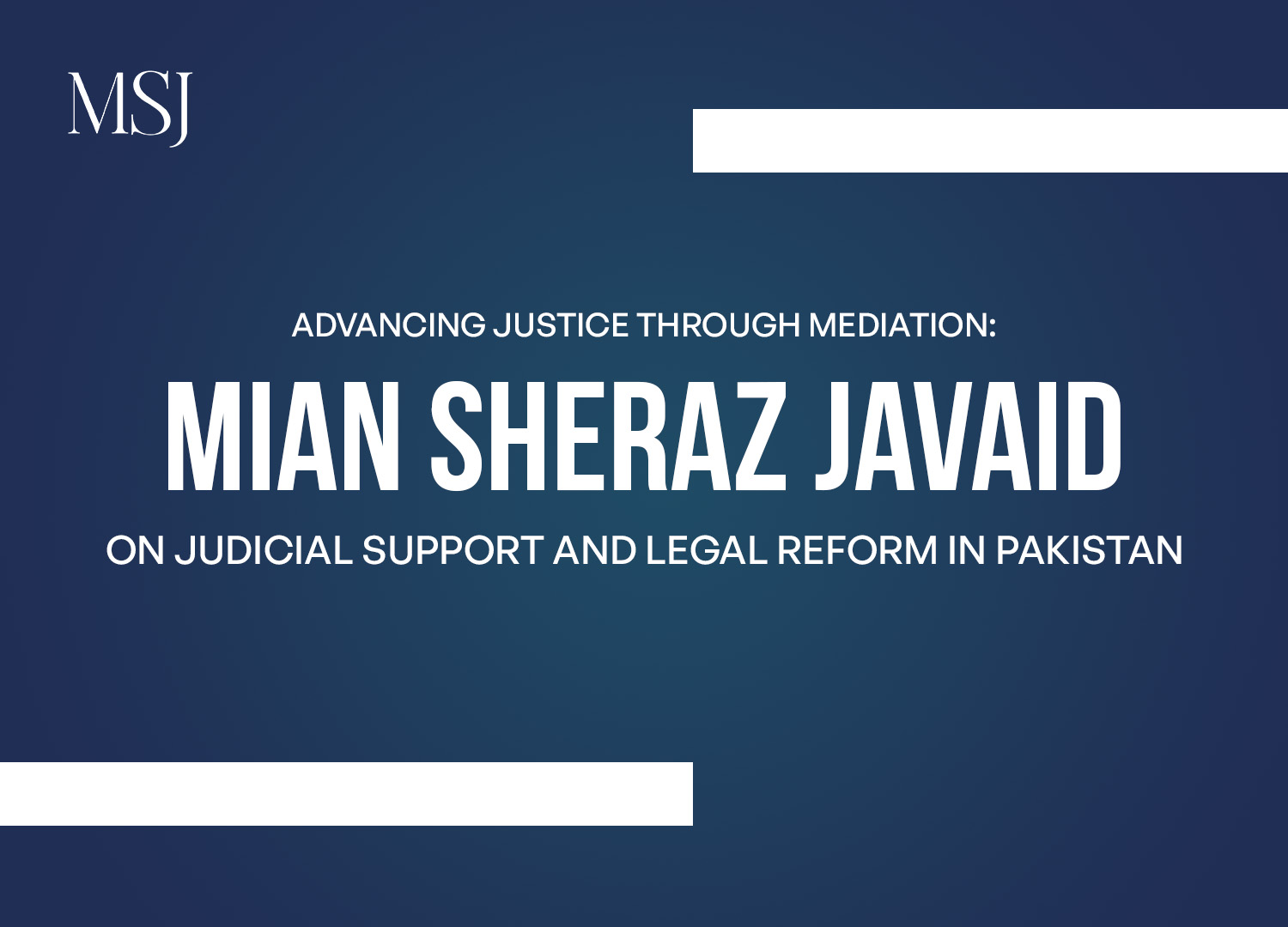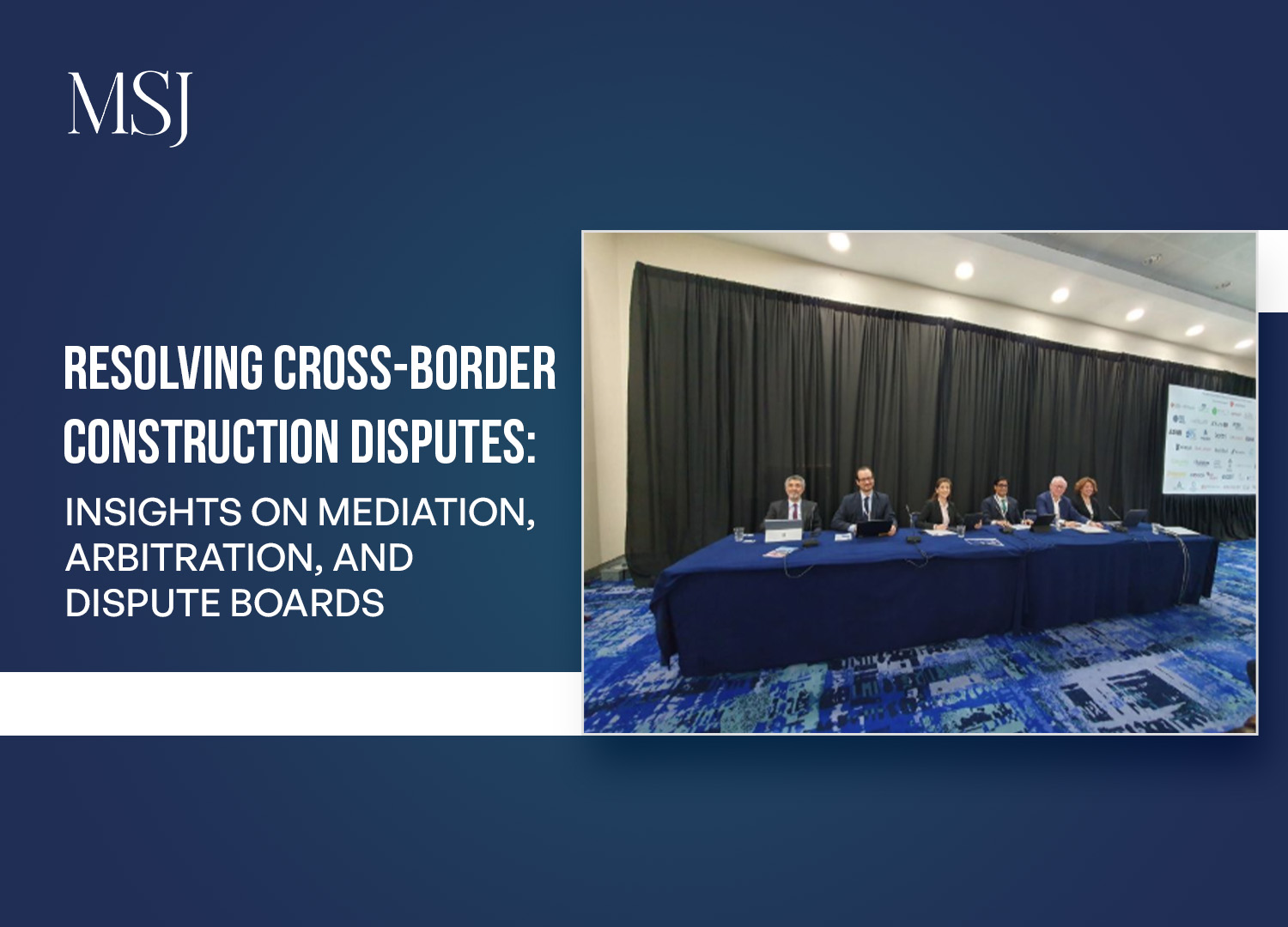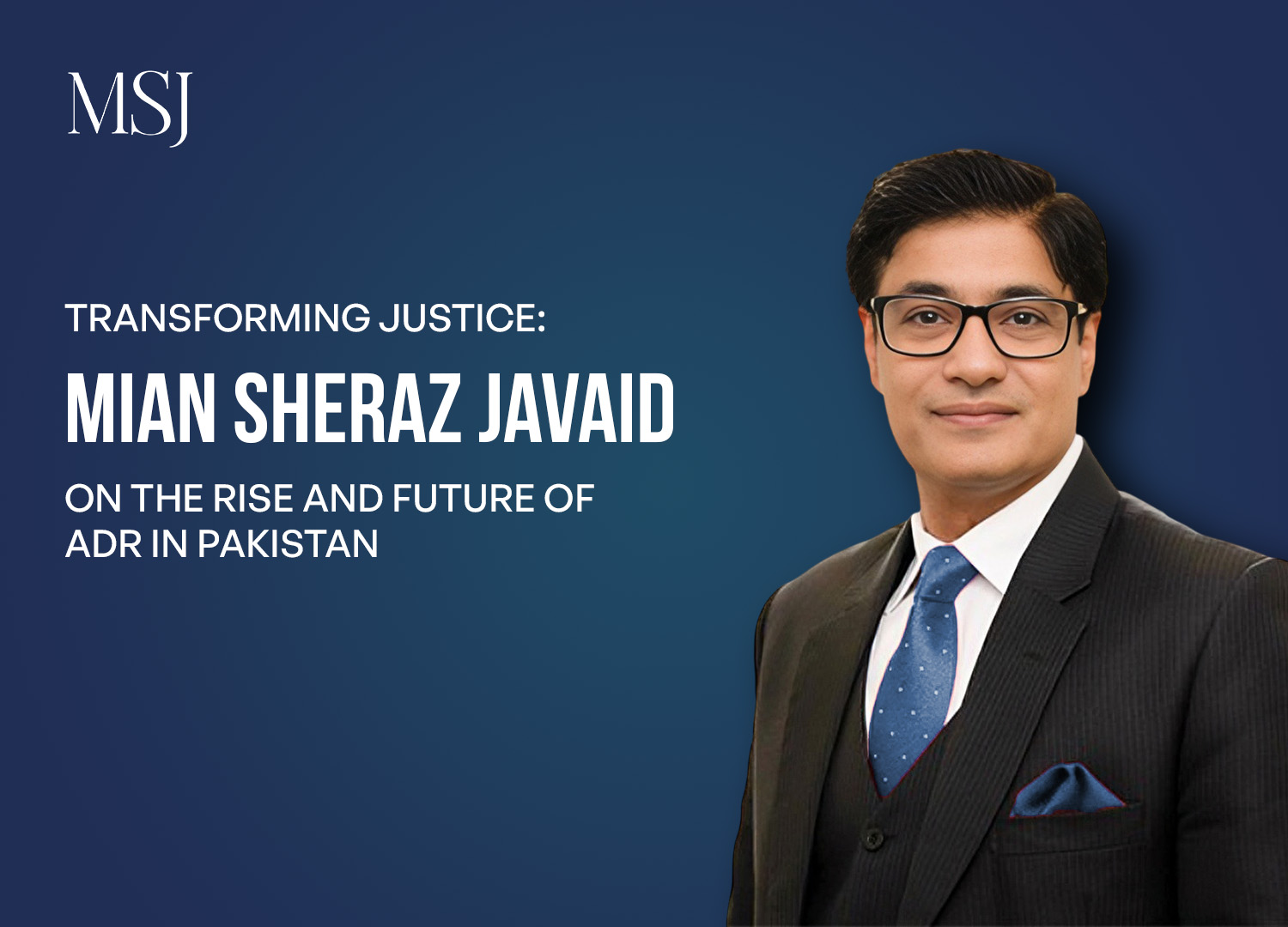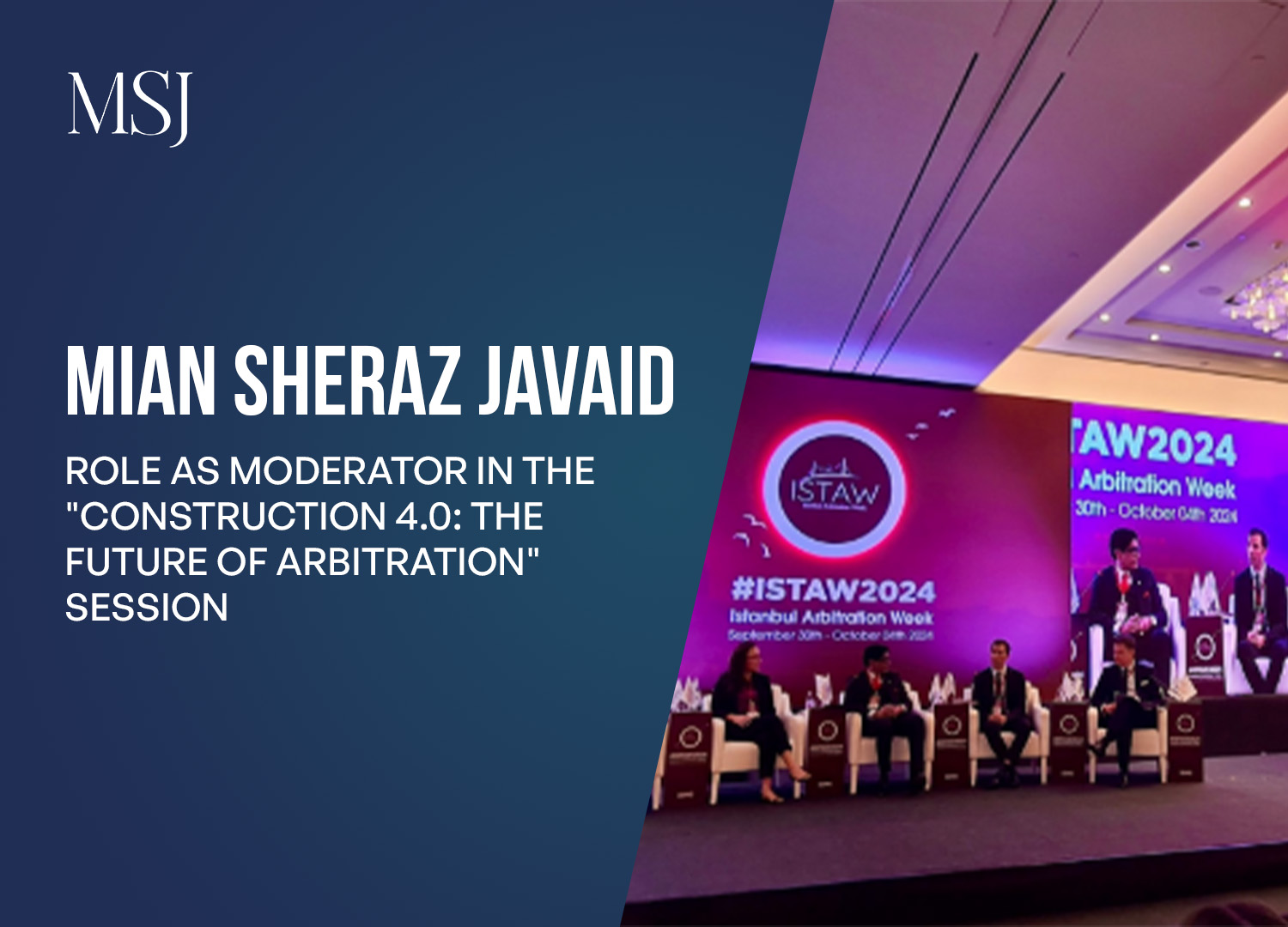MSJ Awarded as a Global Mental Health Ambassador at Oxford University
In his Oxford University address, Sheraz examined the profound connection between mental health and the work of mediators in conflict resolution and dispute mediation. He began by reflecting upon Winston Churchill's famous statement: "Healthy citizens are the greatest asset any country can have," thus establishing the importance of this view in relation to health encompassing physical, mental, and emotional planes. This point was bang in the centre of mediation's nucleus of a profession, where people were expected to handle emotionally charged situations whose mental health might affect much more on performance, decision-making, and outcomes.
Mediation, Sheraz emphasised, involves a hazardous process of balancing empathy, impartiality, and decision-making. Mediators indeed found themselves working in a milieu charged with emotion, with the burden of facilitating decisions often decisive for the future. They act as neutral agents in proceedings concerning dispute resolution by dealing with private disputes and addressing high-stress situations. Because of the confidential nature of these cases, mediators also have worked with rare oversight for their practices.Essentially built on one another, vesting a kind of instability, which inevitably puts pressure on the health of the body's contributors.
IMPORTANCE OF A MEDIATOR’S MENTAL HEALTH
He pointed out that while mediators played an integral role in keeping societal peace and resolving conflicts, not much attention was paid to their mental health. Mediators are constantly dealing with the emotions and emotional states of the dispute parties. They are able to maintain their mental balance to uphold clarity and neutrality, as well as empathy, to provide effective assistance for the parties concerned in their disputes. The question raised during the speech was: How could mediators deliver the best service to their clients if they weren't themselves at their best? This issue of self-care and emotional well-being occupied centre stage; mediators in a state of burnout or mental deficit would not cope well with the emotional demands of the job and would make terrible decisions.
Sheraz drew attention to the importance of mental health, referencing the WHO definition, which frames mental health as a state of well-being in which an individual realises their potential, copes with the normal stresses of life, works productively, and contributes to their community. It pointed out that mental health was not only the absence of the illness but also a level of emotional and psychological wellness that should be preserved. For mediators, keeping this balance was especially significant due to the fact that their work could heavily influence their mental states.
Given the nature of their jobs, Sheraz, in his insight, pointed out that the mediators were always treating themselves on the scale of mental health, shifting through various levels of wellness and stress, depending on the emotional burden that came their way through their work. Emotional residue, an important term Sheraz introduced in this space, was used to describe the effects of carrying an emotional burden a mediator has to bear after dealing with an emotionally charged dispute. When emotional residue is not dealt with effectively, it can build up over time, contributing to the mediator's feelings of burnout, unresponsiveness to changing dynamics, unbalanced decisions, and loss of impartiality.
WHY IS A MEDIATOR’S MENTAL HEALTH IMPORTANT?
Burnout was an in-depth topic explored in the speech. It was described as the phenomenon whereby mediators became fatigued, burnt out, demoralised, and incapable of making sound decisions and adequately regulating emotions. Burnout compromised the quality of mediation, as it inhibited the mediator from mediating emotions or from creatively introducing new information. A burnt out mediator would be hard-stretched to keep the mediation process somewhat neutral, let alone objective or empathetic, and such a mediator would very much undermine the whole conflict resolution process.
Family mediators frequently had to show empathy and solve highly charged issues like divorce, child custody, and emotional trauma. Sometimes, these lawsuits could stress the mediators as they could become the victim, which still worsens the mediator and emotionally loaded individuals' status. The mediators might have been in a wearisome state of consciousness or in deep psychic crisis due to the parties they were counselling during their sessions. This particular part was the focal point because it revealed the poor performance of mediations that were not fierce in the services they offered the mediators. Sheraz stated that if mediators “had detoxified," or in other words, if they had a structured program for relaxation after heavy emotional mediations, they might not have suffered the negative effects of stress and burnout. This act of detoxification was the most important, as he was mainly in charge of solving the mediator's inner emotional conditions and being prepared for the work that was waiting in the future.
SUPPORT SYSTEMS FOR MEDIATORS
The major thesis that Sheraz brought into the conversation was that there should be better support structures for mediators to deal with the emotional challenges they were facing. Mediators had to work without peer support or even the guidance of supervisors, thereby compounding the challenges that they had to go through in the process. Stressors like holding the distressed parties to find inner peace, maintaining professional integrity, and ineffective supervision were the reasons that made mediators no longer productive. Lack of appropriate coping mechanisms and organisational assistance to their employees could contribute to the workers' poor mental health, thereby affecting the mediations' outcomes directly.
Moreover, Sheraz was quick enough to notice another usual problem among the mediators that was not addressed by the current regulatory framework. Although ethical standards and training requirements for mediators were in place, those did not provide the emotional and psychological backing that nearly every mediator should have. Ironically, much of the existing system was concerned about the quality of mediation practice rather than the well-being of the mediators themselves. Sheraz insisted on a complete shift in focus—from mere concern about well-trained and qualified mediators to a system that nurtured mediators emotionally and mentally.
Addressing this, Sheraz also gave some suggestions. He suggested one of the most important ones, which was co-mediation. It is the process of two mediators working together on a case, which provides clothent support and a share of the emotional and cognitive burden. This kind of collaboration did not only take pressure down, but it was also beneficial in forming a place for meditation and strategising what can be done to improve the quality of the mediation process. Sheraz was also in favour of the development of emotional resilience and self-care training for mediators so that they can learn how to better cope with mental health issues caused by their work.
Many specific attentional functions affecting the effectiveness of a mediation process are performed by mediators. In changing human interaction, empathy occupies a central place and is viewed as a keen skill that a mediator can utilise. In his last event, for example, one of them may have been the mediator who was otherwise impaired mentally and would have failed to process critical information, taken the sides of the parties involved incorrectly, or rested the conversation inefficiently. Consequently, the mediations could have remained inconclusive, the situation would be aggravated, or generally, the context would be one of the negative experiences for the parties involved.
Furthermore, Sheraz suggested that mediation organisations implement better screening processes for high-stress cases, particularly in situations involving domestic violence or high-conflict family disputes. Mediators should not have been forced to navigate these emotionally charged cases without appropriate support or resources. Clearer role definitions and better screening could have alleviated some of the stress and emotional burden on mediators, allowing them to remain impartial and focused.
CONCLUSION
The conclusion of the speech emphasised that ensuring mediators’ mental health was not just about protecting them but also about improving the quality of mediation. A mentally healthy mediator was more likely to engage in empathetic, thoughtful, and fair conflict resolution, leading to better outcomes for all parties involved. By prioritising the mental health of mediators, the profession could ensure that mediation remained an effective and sustainable method of resolving disputes, fostering fairness, justice, and healing in society. The call to action was clear: the profession must have recognised the importance of mental health for mediators and created a system that supported their well-being, ensuring the continued success and integrity of the mediation process.






